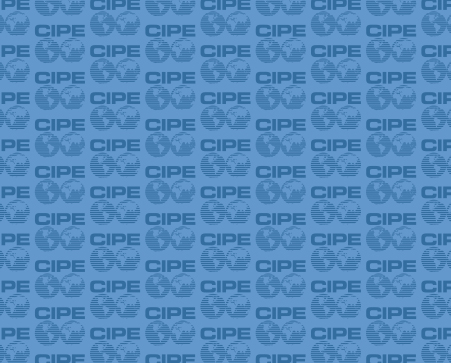
On December 17, 2010, police expropriated the equipment and goods of a fruit seller in Sidi Bouzid, Tunisia. Because of his informal status, the fruit seller had no option of appeal or avenue for official protest. He also had no collateral to secure a loan to buy new equipment, let alone grow his business. With no means of supporting his family of seven, the man now world famous for lighting the first spark of the Arab Spring, Mohammed Bouazizi, committed suicide by self immolation.
Bouazizi’s tragedy stemmed from an affront to his dignity, an absence of justice, and economic disenfranchisement. He was not alone. As the following months unfolded, it became clear just how many businesspersons and citizens across the region shared these same grievances when hundreds of thousands took to the streets to demand political and economic freedom.
Since then over two years have passed and Tunisians, Egyptians, and Libyans have experienced the unprecedented democratic elections and the chance to choose their own leaders. But free and fair elections, even at their best, are only half the battle.
Economic inclusion remains a serious challenge for Tunisians, Egyptians, and Libyans alike. For newly elected leaders, it is easy to focus on social grievances — increasing subsidies, higher wages. Much harder, but equally necessary, is the task of strengthening the country’s entrepreneurial ecosystem.
Entrepreneurs and businesspersons like Mohammed Bouazizi are crucial to building both strong economies and strong democracies. Not only do entrepreneurs contribute to the economy directly, but they create jobs for others, support their community, join business associations and chambers of commerce, and contribute a private sector voice to policy decisions.
So how can democracy deliver for entrepreneurs and give them the opportunities and infrastructure they need to succeed?
A recent infographic by the Institute for Liberty and Democracy strikingly illustrates the economic origins of the Arab Spring and ominously highlights the pressing issues related to the extralegal economies in which so many aspiring entrepreneurs and businesspersons continue to operate. For example, in Sidi Bouzid, Mohamed Bouazizi’s hometown, 99 percent of entrepreneurs operate extralegally. In Egypt, the number is 82 percent, and in Libya it is 85 percent.
Democracy will not flourish without greater economic inclusion. That is why CIPE is hosting an international conference April 9-10 in Chicago, IL on Democracy that Delivers for Entrepreneurs. Featuring keynote speaker Hernando de Soto, the conference aims to capture successful approaches on how to develop entrepreneurial ecosystems so that Bouazizi and others like him have assured property rights, legal avenues to turn to in the face of injustice, and real opportunities for maintaining and scaling up their businesses.
Whatever shapes the Middle East’s new democracies and economies end up taking, addressing the issue of economic inclusion will be crucial to creating sustainable, free, and fair societies.
Published Date: February 11, 2013
